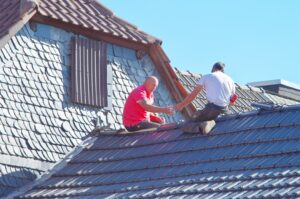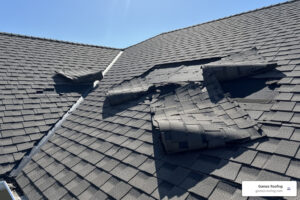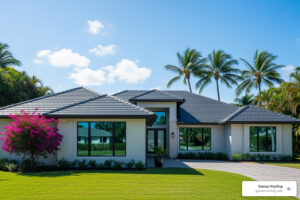5 Common Solar Pool Heater Issues
Are you dealing with unexplained leaks or lukewarm pool water despite sunny conditions? This guide explains the top five common issues homeowners face with solar pool heaters, from plumbing leaks and insufficient heating to pump failures and sensor malfunctions. You’ll learn how to detect problems, perform basic troubleshooting, schedule preventative care, and know exactly when to call in the experts at Gomez Roofing: Florida Roofing and Solar Solutions for reliable solar pool heater service. We’ll cover:
- Leak detection, causes, temporary fixes, and prevention
- Troubleshooting heating shortfalls and controller checks
- Diagnosing low water flow and clearing blockages
- Identifying pump failures, repair steps, and maintenance
- Addressing sensor/controller malfunctions and professional guidance
- Seasonal maintenance tips for long-term reliability
- When to request a free estimate or schedule expert repairs
Why Is My Solar Pool Heater Leaking? Causes, Detection, and Fixes
A solar pool heater leak occurs when water escapes from a collector or connecting plumbing, reducing system pressure and impairing heat transfer. Understanding leak locations and underlying causes ensures swift remediation and prevents roof damage from persistent moisture.
Common Issues with Solar Pool Heaters
Leaks in solar collectors are a frequent problem, often caused by weather damage, aging materials, or improper installation. Low water flow, blocked collectors, and malfunctioning sensors or controllers also contribute to inefficient heating.
How Do I Identify the Source of a Solar Pool Heater Leak?
Identifying the source of a leak requires inspecting the solar collector, manifold, and plumbing connections for water accumulation, corrosion, or drips at seams.
- Visually examine panel seams and header pipes for moisture trails.
- Run the system under low pressure and watch for drips at joints.
- Check under roof penetrations and around fittings for staining or mold growth.
Detecting a leak early protects roofing materials and maintains heating performance.
What Are the Most Common Causes of Solar Pool Heater Leaks?
Solar pool heater leaks most often result from weather-related damage, aging components, or improper installation that compromise seals and fittings.
| Component | Cause | Symptom |
|---|---|---|
| Solar collector manifold | UV degradation | Cracked seams with visible drips |
| Flexible plumbing hoses | Thermal expansion stress | Split hoses and wet spots |
| Panel-to-plumbing fittings | Loose installation torque | Wobbly connections and leaks |
These failure points demand repair or replacement to restore system integrity and consistent heating.
How Can I Perform DIY Leak Detection and Temporary Repairs?
DIY leak detection involves isolating sections of the solar loop, applying pressure, and sealing minor cracks until professional service can be scheduled.
- Shut off the pump and drain panels to relieve pressure.
- Pressurize each zone with a hand pump and watch for escaping air or water.
- Apply specialized solar sealant to visible cracks or loose fittings.
- Retest under system pressure to confirm the temporary repair.
Temporary fixes maintain functionality while arranging a thorough inspection and long-term solution.
When Should I Call a Professional for Solar Pool Heater Leak Repairs?
If leaks persist after sealant application or involve multiple panels and roof penetrations, a licensed technician must replace seals, tighten fittings, and test system pressure. Gomez Roofing’s certified solar specialists conduct durable repairs that preserve your roof warranty and heating efficiency. Their comprehensive leak-repair service includes full diagnostic testing, component replacement, and post-repair performance validation.
How Can I Prevent Future Leaks With Proper Maintenance?
Regular inspections and seasonal care minimize leak risks and prolong system life.
- Inspect seals and fittings monthly, especially after intense sun exposure.
- Tighten loose connections and reapply UV-resistant sealant annually.
- Flush panels and hoses before winter to eliminate trapped water.
- Schedule a professional roof and solar system tune-up every spring.
Consistent care prevents small issues from becoming costly repairs and ensures year-round heating performance.
Why Is My Solar Pool Heater Not Heating? Troubleshooting Insufficient Heating Issues
Insufficient heating occurs when warm solar radiation isn’t transferring effectively to pool water due to flow blockages, pump deficiencies, or sensor/controller errors. Proper diagnosis restores peak thermal gain and cost-effective operation.
What Causes Solar Pool Heaters to Stop Heating Effectively?
Solar pool heaters underperform when water flow is restricted, panels are dirty, or control systems misread temperatures.
- Low water flow reduces heat exchange.
- Clogged filters prevent full circulation.
- Pump failures lower pressure and volume.
- Sensor or controller malfunctions interrupt heating cycles.
Understanding each cause directs targeted corrective steps and prevents repeated downtime.
How Do I Check and Clean Solar Pool Heater Filters and Pumps?
Routine filter and pump maintenance ensures unobstructed flow and optimal heating.
- Turn off and depressurize the system.
- Remove and rinse filters to clear debris.
- Inspect pump basket for leaves or sediment and clean thoroughly.
- Reassemble components, refill the system, and test flow rate.
Clean filters and a properly functioning pump reestablish consistent circulation through solar panels.
Could Sensor or Controller Malfunctions Affect Heating?
Temperature sensors and controllers regulate flow direction and activation of the pump. Faulty readings or tripped circuits can prevent heating even under full sun exposure.
- Reset the controller to factory defaults and observe startup sequences.
- Inspect sensor wiring for corrosion or loose connectors.
- Replace sensors or controllers if recalibration fails.
Accurate sensor signals and a responsive controller maximize heating efficiency and avoid needless energy use.
When Is It Time to Contact Gomez Roofing for Heating Repairs?
Persistent heating shortfalls despite filter cleaning, pump checks, and controller resets warrant professional diagnostics. Gomez Roofing’s solar technicians use thermal imaging and flow-meter analysis to pinpoint inefficiencies and perform targeted repairs. Their service ensures reliable heating, extended system lifespan, and backed warranties on components and workmanship.
How Do I Troubleshoot Low Water Flow in My Solar Pool Heater?
Low water flow hampers heat transfer and can damage pumps when starved of liquid. Recognizing symptoms and clearing obstructions restores proper operation.
Troubleshooting Solar Pool Systems
Low water flow can be a sign of a problem, and can be caused by a clogged filter. Other issues include a malfunctioning pump or sensor problems.
What Are the Signs of Low Water Flow in Solar Pool Heating Systems?
Signs of low flow include:
- Reduced water temperature gain despite sunny conditions
- Gurgling sounds in plumbing lines
- Pump cavitation noise
- Air pockets emerging at panel inlet
Early detection of these indicators prevents strain on the pump and maintains heating capacity.
How Can I Diagnose and Clear Clogged Filters or Pipes?
Clogged filters and pipes restrict circulation and cause backpressure.
- Shut off the pump and release system pressure.
- Remove and inspect filters; replace cartridges if worn.
- Flush plumbing lines with a cleaning solution or pressurized water to dislodge debris.
- Use a pipe snake or flexible cleaning probe for stubborn blockages.
Clearing flow paths fully restores thermal exchange and pump performance.
What Pump Problems Cause Low Water Flow and How Are They Fixed?
Pump malfunctions often manifest as diminished flow or unusual noises.
| Issue | Symptom | Repair or Replacement |
|---|---|---|
| Worn impeller blades | Reduced flow volume | Replace impeller assembly |
| Seal or gasket leaks | Air ingestion, cavitation | Install new seals and gaskets |
| Motor bearing failure | Grinding noise, vibration | Overhaul motor or replace pump |
What Are Common Solar Pool Heater Pump Problems and How Can I Fix Them?
Pump failures compromise flow and heating. Recognizing failure modes and performing routine care avoids downtime and extends equipment life.
How Do I Recognize Solar Pool Heater Pump Failures?
A failing pump exhibits:
- Strange noises such as grinding or humming indicating bearing wear.
- Leaks around the pump housing or shaft seal.
- Performance drops with visible flow reduction during operation.
Timely identification leads to targeted maintenance or replacement.
What Are the Steps to Repair or Replace a Faulty Pump?
Repairing or replacing a pump involves:
- Isolating the pump and draining water from the circuit.
- Inspecting seals, impellers, and bearings for wear.
- Replacing damaged parts or installing a new pump rated for your system’s flow requirements.
- Reassembling and testing at full capacity to confirm proper operation.
Complex pump overhauls or upgrades merit professional assistance for safety and warranty compliance.
How Does Proper Pump Maintenance Prevent Future Problems?
Routine pump care ensures steady operation and avoids unexpected failures:
- Check and tighten mounting bolts quarterly.
- Lubricate bearings if the model allows.
- Inspect and clean the strainer basket monthly.
- Monitor performance metrics and schedule annual professional inspections.
Consistent maintenance preserves pump efficiency and minimizes repair costs.
How Do Sensor and Controller Malfunctions Affect Solar Pool Heaters?
Sensors and controllers orchestrate heating cycles and flow direction. Failures in these components can halt operation or cause erratic heating behavior.
What Are the Common Signs of Sensor or Controller Failures?
Faulty sensors or controllers present as:
- Incorrect temperature readings on the display panel
- System shutdowns despite adequate sun exposure
- Inability to switch between heating and bypass modes
- Random cycling of the pump without command
These malfunctions disrupt heating schedules and degrade overall system performance.
How Can I Reset or Troubleshoot Solar Pool Heater Controllers?
Basic controller troubleshooting steps include:
- Power-cycle the controller by disconnecting and reconnecting power.
- Check fuse and circuit breaker to ensure proper voltage.
- Inspect wiring harnesses for corrosion or loose connections.
- Run a factory reset and re-enter temperature setpoints.
If resets fail, replacing the controller module or sensor may be necessary for reliable operation.
When Should I Seek Expert Help for Sensor and Controller Repairs?
Complex electronic diagnostics and firmware updates require professional tools and expertise. Gomez Roofing’s solar division provides advanced controller programming, sensor calibration, and component replacement services, ensuring precise temperature regulation and optimal energy use.
How Can I Maintain My Solar Pool Heater to Avoid Common Problems?
A comprehensive maintenance routine prevents performance issues and extends the lifespan of your solar pool heating system.
Maintaining Solar Pool Heating Systems
Regular cleaning of solar panels is crucial for optimal efficiency, as dirt and debris can reduce their effectiveness. Additionally, monitoring pressure and checking for leaks are essential maintenance tasks.
What Is a Comprehensive Solar Pool Heater Maintenance Checklist?
A proactive checklist covers cleaning, inspection, and seasonal adjustments:
- Inspect panels and plumbing for leaks or damage.
- Clean solar collector surfaces monthly to remove debris and algae.
- Test flow rate and adjust valve settings for optimal circulation.
- Check seals and reapply UV-resistant sealant annually.
- Winterize by draining panels and insulating exposed plumbing.
Implementing these steps preserves efficiency and forestalls costly breakdowns.
How Often Should I Schedule Professional Maintenance and Inspections?
Professional solar and roofing inspections twice a year—spring and fall—ensure:
- Panel alignment remains optimal for sun exposure.
- Roof penetrations are sealed and free of leaks.
- Electronic controls and pumps operate within manufacturer specifications.
Regular expert assessments complement DIY care and uphold system warranties.
What Are Best Practices for Winterizing Solar Pool Heaters in Florida?
Although freezing is rare in Florida, sudden cold snaps can stress components:
- Drain panels and hoses completely when temperatures drop below 40 °F.
- Bypass the solar loop using actuated valves to protect the pump.
- Cover panels with UV-resistant, breathable tarps to prevent debris buildup.
These precautions safeguard against thermal shock and preserve plumbing integrity.
When Should Homeowners Call Gomez Roofing for Solar Pool Heater Repairs?
Complex or persistent solar pool heater failures merit expert intervention to protect your investment and property.
What Types of Solar Pool Heater Problems Require Professional Service?
Homeowners should engage a professional when encountering:
- Multiple leaks affecting roof underlayment
- Pump or motor replacements beyond minor seal changes
- Controller firmware issues or sensor recalibration
- Panel mounting failures requiring roof repair
How Does Gomez Roofing Ensure Quality Repairs and Customer Satisfaction?
Gomez Roofing combines roofing and solar expertise to deliver:
- Dual-licensed technicians for roof-mounted solar installations
- Manufacturer-approved parts and UV-resistant sealants
- Performance testing with thermal imaging and flow meters
- Comprehensive warranties on labor and replacement components
How Can I Request a Free Estimate or Schedule Solar Pool Heater Service?
Ready to restore reliable heating or prevent future issues? Contact Gomez Roofing today for a free estimate or to schedule a solar pool heater inspection. They also offer poolside property upgrades—including commercial decking—to complete your outdoor living enhancements.
Reliable solar pool heating depends on leak-free plumbing, steady water flow, functional pumps, and responsive controls. Routine maintenance and prompt professional support preserve efficiency and extend system life. For expert diagnostics, repairs, or new installations, Gomez Roofing’s certified solar specialists deliver quality workmanship, backed by robust warranties and exceptional customer service. Ensure your pool stays warm and worry-free—request your complimentary estimate today.




